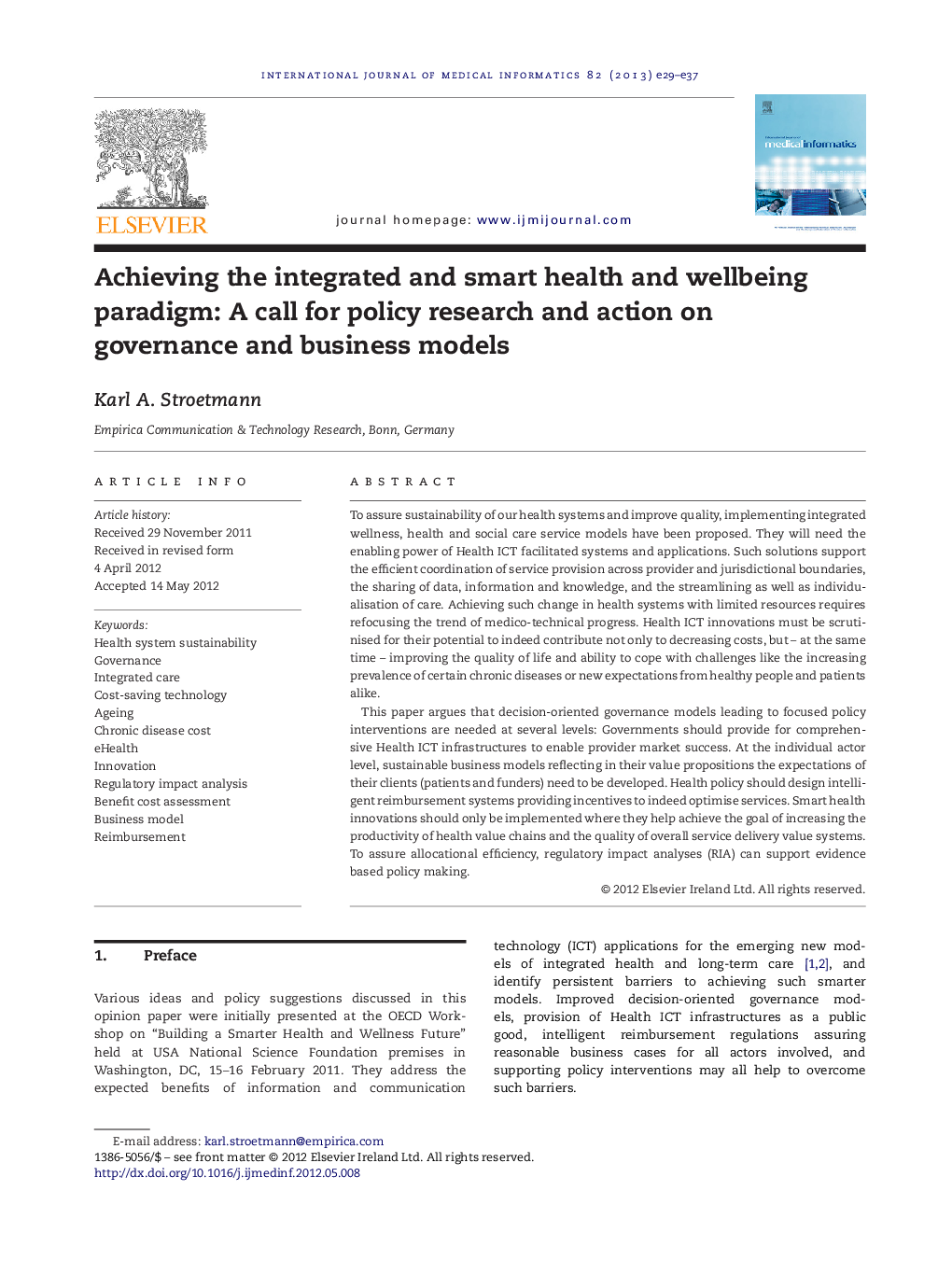| Article ID | Journal | Published Year | Pages | File Type |
|---|---|---|---|---|
| 516208 | International Journal of Medical Informatics | 2013 | 9 Pages |
To assure sustainability of our health systems and improve quality, implementing integrated wellness, health and social care service models have been proposed. They will need the enabling power of Health ICT facilitated systems and applications. Such solutions support the efficient coordination of service provision across provider and jurisdictional boundaries, the sharing of data, information and knowledge, and the streamlining as well as individualisation of care. Achieving such change in health systems with limited resources requires refocusing the trend of medico-technical progress. Health ICT innovations must be scrutinised for their potential to indeed contribute not only to decreasing costs, but – at the same time – improving the quality of life and ability to cope with challenges like the increasing prevalence of certain chronic diseases or new expectations from healthy people and patients alike.This paper argues that decision-oriented governance models leading to focused policy interventions are needed at several levels: Governments should provide for comprehensive Health ICT infrastructures to enable provider market success. At the individual actor level, sustainable business models reflecting in their value propositions the expectations of their clients (patients and funders) need to be developed. Health policy should design intelligent reimbursement systems providing incentives to indeed optimise services. Smart health innovations should only be implemented where they help achieve the goal of increasing the productivity of health value chains and the quality of overall service delivery value systems. To assure allocational efficiency, regulatory impact analyses (RIA) can support evidence based policy making.
